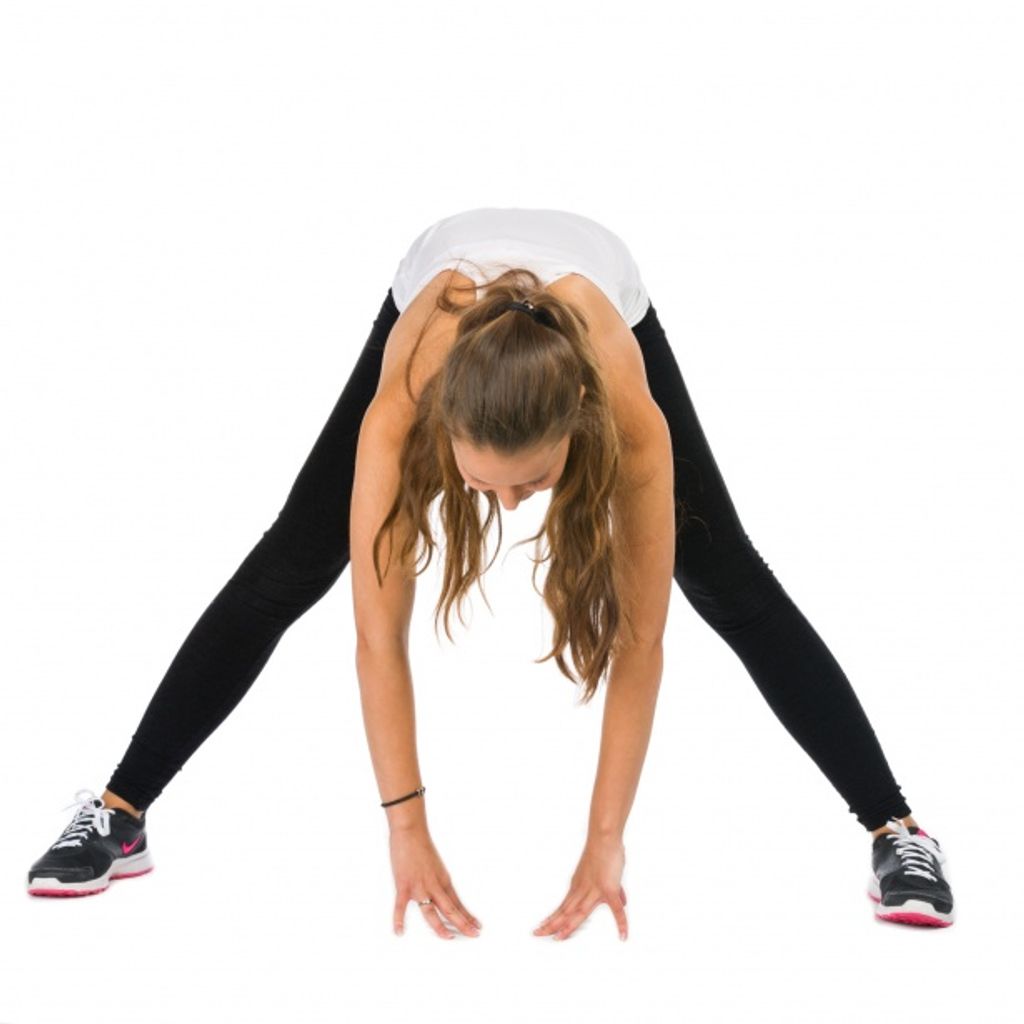
Effective Strategies for Post-Gym Muscle Recovery
Recover like a pro: Effective strategies for post-gym muscle recovery

Fuel your body with the right nutrients
After an intense workout, your muscles need the right fuel to recover and grow stronger. Protein is the key nutrient that your muscles crave. It helps repair the damage caused by exercise and promotes muscle growth. Make sure to include a good source of protein in your post-workout meal or snack, such as chicken, fish, eggs, or a protein shake.
In addition to protein, carbohydrates are also important for muscle recovery. They provide the energy your body needs to replenish glycogen stores and support muscle repair. Opt for complex carbohydrates like whole grains, fruits, and vegetables.
To ensure you're getting all the necessary nutrients, consider including a variety of vitamins and minerals in your post-workout meal. These micronutrients play a crucial role in muscle recovery and overall health. You can get them from foods like leafy greens, nuts, seeds, and colorful fruits and vegetables.
Remember, what you eat after your workout can make a big difference in how quickly your muscles recover and how well they adapt to future workouts.
Hydrate, hydrate, hydrate
Staying hydrated is crucial for muscle recovery. Drinking enough water helps to flush out toxins and prevent muscle cramps. It also aids in the delivery of nutrients to your muscles, helping them recover faster. Make sure to drink water before, during, and after your workout to stay properly hydrated.
In addition to water, electrolyte-rich drinks like sports drinks or coconut water can help replenish the electrolytes lost through sweat. These drinks provide a quick source of hydration and can help prevent dehydration during intense workouts.
To keep track of your hydration levels, you can use a simple table like the one below:
| Time | Amount of Water Consumed |
|---|---|
| 8 AM | 16 oz |
| 10 AM | 8 oz |
| 12 PM | 12 oz |
Remember, staying hydrated is key to maximizing your muscle recovery and overall performance.
Stretch it out: The importance of post-workout stretching
Stretching after a workout is crucial for muscle recovery. It helps to improve flexibility, reduce muscle soreness, and prevent injuries. By stretching, you are able to lengthen and relax your muscles, allowing them to recover faster.
Here are some key benefits of post-workout stretching:
- Increases blood flow to the muscles, delivering oxygen and nutrients
- Helps to remove waste products from the muscles
- Improves joint range of motion
Remember to stretch all major muscle groups, holding each stretch for 15-30 seconds. Don't forget to breathe deeply and relax into each stretch.
Stretching is not only beneficial for your muscles but also for your mind. It can help to reduce stress and promote a sense of relaxation after an intense workout.
So, make sure to include a few minutes of stretching in your post-gym routine to maximize your muscle recovery.
Get your Zzz's: The role of sleep in muscle recovery
Getting enough sleep is crucial for muscle recovery. Sleep is when your body repairs and rebuilds muscle tissue that has been broken down during your workout. It is during deep sleep that the growth hormone is released, which helps in muscle repair and growth. Lack of sleep can lead to muscle fatigue and hinder your progress in the gym.
To optimize your muscle recovery, aim for 7-9 hours of quality sleep each night. Create a bedtime routine that promotes relaxation, such as avoiding screens before bed and creating a comfortable sleep environment. If you have trouble falling asleep, try incorporating relaxation techniques like deep breathing or meditation.
In addition to getting enough sleep, it's also important to prioritize rest days. Rest days allow your muscles to recover and prevent overtraining. Listen to your body and take rest days when needed. Overtraining can lead to muscle strain and increase the risk of injury.
Remember, sleep and rest are just as important as your workouts when it comes to muscle recovery. So make sure to get your Zzz's and give your muscles the time they need to repair and grow.
Ice, ice, baby: The benefits of cold therapy
After an intense workout, your muscles may be feeling sore and inflamed. That's where cold therapy comes in. Applying ice or cold packs to your muscles can help reduce inflammation and alleviate muscle pain. It works by constricting blood vessels and reducing blood flow to the area, which can help reduce swelling and promote faster recovery.
But cold therapy isn't just for post-workout recovery. It can also be beneficial during your workout. Taking an ice bath or using a cold compression device during breaks can help reduce muscle fatigue and improve performance. So don't be afraid to embrace the cold and give your muscles the relief they need.
Here are a few ways you can incorporate cold therapy into your post-gym routine:
- Apply an ice pack or cold compress to sore muscles for 15-20 minutes
- Take an ice bath for 10-15 minutes
- Use a cold compression device, such as a cryotherapy machine or cold therapy wrap
Remember, it's important to listen to your body and not overdo it with cold therapy. If you experience any discomfort or prolonged pain, it's best to consult with a healthcare professional.
Foam rolling: The secret weapon for muscle recovery
Foam rolling is a game-changer when it comes to muscle recovery. By using a foam roller, you can target specific muscle groups and release tension and tightness. It's like giving yourself a deep tissue massage, but without the hefty price tag.
Not only does foam rolling help with muscle soreness, but it also improves flexibility and range of motion. It can even enhance your performance during workouts by increasing blood flow to the muscles.
Here are some key benefits of foam rolling:
- Reduced muscle soreness: Foam rolling helps to break up adhesions and knots in the muscles, reducing soreness and promoting faster recovery.
- Improved circulation: By applying pressure to the muscles, foam rolling increases blood flow, delivering oxygen and nutrients to the muscles for optimal recovery.
- Increased flexibility: Regular foam rolling can help improve flexibility and range of motion, allowing you to move more freely during workouts.
So, next time you hit the gym, don't forget to grab a foam roller and give your muscles some much-needed TLC!
Listen to your body: Rest and recovery days
Rest and recovery days are crucial for allowing your muscles to repair and grow stronger. It's important to listen to your body and give it the rest it needs. Pushing yourself too hard without proper rest can lead to overtraining and increased risk of injury.
During your rest days, focus on activities that promote relaxation and recovery. This could include gentle stretching, yoga, or even just taking a leisurely walk. Avoid high-intensity workouts on these days to give your muscles a chance to recover.
Additionally, make sure you're getting enough sleep during your rest days. Sleep is when your body does most of its repair work, so aim for 7-9 hours of quality sleep each night.
Remember, rest and recovery are just as important as the workouts themselves. Give your body the time it needs to recover, and you'll see better results in the long run.
Supplement wisely: The truth about post-workout supplements
When it comes to post-workout supplements, it's important to separate fact from fiction. While some supplements may claim to be the magic solution for muscle recovery, the truth is that they are not a substitute for a well-balanced diet and proper rest.
The key to supplementing wisely is to focus on the essentials. Protein powders, for example, can be a convenient way to ensure you're getting enough protein to support muscle repair and growth. Creatine, on the other hand, has been shown to enhance performance and muscle strength.
Here are a few essential post-workout supplements to consider:
- Protein powder: Helps with muscle repair and growth.
- Creatine: Enhances performance and muscle strength.
- Branched-chain amino acids (BCAAs): Aid in muscle recovery and reduce muscle soreness.
Remember, supplements should complement a healthy lifestyle and exercise routine, not replace them. It's always best to consult with a healthcare professional or registered dietitian before starting any new supplement regimen.


